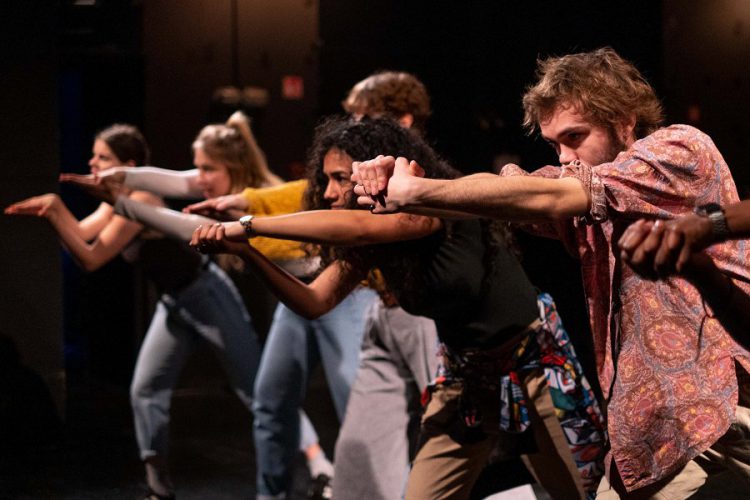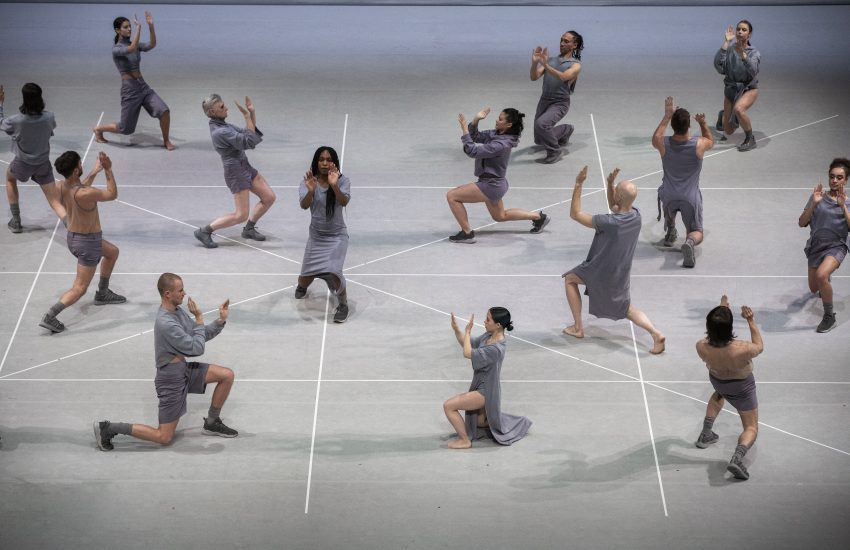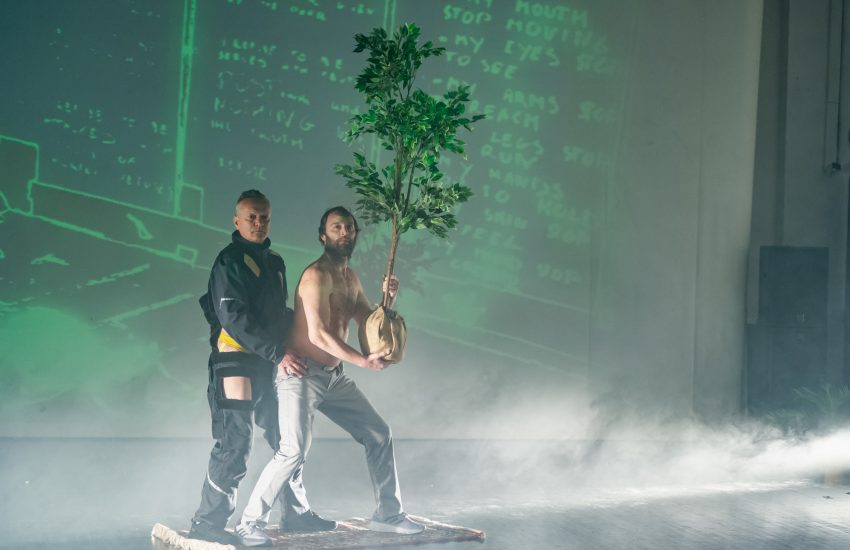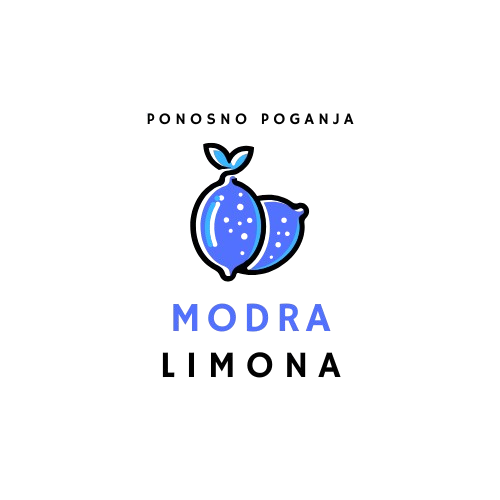To ni predstava, to je vaša refleksija! / This is not a show, this is your reflection!
Tekst in glas: Matic Ferlan
Recenzija: Anja Guid
Angleški prevod: Sabina Žakelj
Uporabljena glasba: Snarky Puppy, Sharktank, 2015; vse pravice pridržane nosilcu avtorskih pravic
Uporabljene fotografije: Sunčan Stone in SNG Nova Gorica; vse pravice pridržane nosilcu avtorskih pravic
🇬🇧🠋🇬🇧 ENGLISH VERSION BELLOW 🇬🇧🠋🇬🇧
Včeraj, 19. februarja, je bila v Gledališču Glej – premierno pa že dan pred tem v SNG Nova Gorica – na ogled mednarodna koprodukcija projekta ID Babylon Kdo sem? (Who Am I?). Gre za gledališko delo, ki je nastalo kot finalni sežetek vseh partnerjev tega evropskega druženja. Pod režijsko taktirko Tijane Zinajić so ga sooblikovali: Gledališče Glej in SNG Nova Gorica iz Slovenije, Théâtre du Pélican iz Francije, nemški Das Letzte Kleinod, delleAli teatro naše zahodne sosede ter britanski The Albany. Vsaka institucija je pred tem že sproducirala svojo predstavo v maternem jeziku (pri nas sta bili to predstavi V našo skuto ne pojdejo v Novi Gorici ter Café Evropa v Ljubljani), iz posameznih zasedb pa je bil izbran po en predstavnik, ki je postal član končnega mednarodnega ansambla.
Predstava tematizira obče sprejeto težnjo − tu ad hoc ideal − po vsesplošni enotnosti in enakopravnosti ne glede na spol ali spolno usmerjenost, narodnost, raso, veroizpoved in socialno pozicijo. Glede na to, da je mecen projekta Evropska unija, ni nič nenavadnega, da promovirajo enega svojih (povsem častivrednih) socialnih postulatov, skrčenega v znanem geslu: »Liberté, égalité, fraternité!« Orodja, s katerimi je tema izoblikovana, pa so točni pendant slednjemu – operirajo namreč s ksenofobijo, homofobijo, rasizmom, spolnim nasiljem, nacionalizmom, šovinizmom in vsesplošnim zasmehovanjem drugega. S tem dosegajo konstantno recipročno projekcijo lajtmotiva. Ta se namreč manifestira kot rezultat dogajanja okrog sebe; je torej absolviran posredno. Tako je zadeta žebljica na glavico, saj akterji jasno pokažejo, kako organski in saj-smo-vendar-v-21.-stoletju so njihovi ideali, oziroma bolje – kako puhloglavi so njihovi nasprotniki.

Arbitrarno prehajanje med jaz kot individuum in jaz kot generacija še povečuje zavedanje o univerzalnem sporočilu predstave. Prikladno za naziv projekta – Babilon je po biblijskem narativu namreč sprva enoten prostor, kjer vsi govorijo isti jezik, nato pa preobražen v konfuzno čorbo n jezikov, ki so prisiljeni eksistirati v kaosu. Jebiga, na koncu moramo naše soobstajanje sprejeti. Pa tudi če to pomeni enoglasno ter sočasno prepevanje evropske himne v več jezikih (kolateralno dejstvo, da večini igralcem petje ni ravno moćna strana, dodatno pripomore k vsesplošni konfuznosti), preklinjanje, zmerjanje in prazno besedičenje. Tudi vmesni stereotipni verbalni napadi tipa Goljat proti Davidu, ko se pet igralcev združi proti nemočnemu šestemu, premišljeno soustvarjajo štimungo predstave. Naj bo Britanec kar tiho, saj je zapustil EU; naj se srečni ne oglašajo, saj ne vejo, kaj je resno sranje; naj transspolni že nehajo glumit, da so nekaj, kar niso; naj se ljudje iz tretja sveta nehajo pretvarjati, da so nam enaki; naj nas depresivni ljudje ne utrujajo s svojimi problemi; ter naj se pametni nehajo oglašat, saj so za veliko večino popolnoma irelevantni. V pravih pogojih smo vsi pač sposobni škodovati.
Vsak igralec že takoj na začetku v enovrstičnicah odgovori na glavno vprašanje: »Kdo sem?« Rebeka Štokelj Hlede (Nova Gorica) si je vedno želela igrati, Tina Malenšek (Ljubljana) je vedno srečna, Jule Viebrock (Nemčija) rada teče, Mariana De Freitas Mothe (Italija) je hotela biti rock zvezda, Theo Gonin (Francija) kadi in trenira borilne veščine, Tendayi Mutongerwa (Velika Britanija) pa je želel postati super junak. Na nek način vsi predvidevajo, kaj so, a hkrati nihče ne ve, kdo pravzaprav je. Predstava gravitira proti katarzičnemu trenutku samorealizacije, ko bi igralci spoznali kaj zares so, a namesto tega je publikumu servirano resignirano zadovoljstvo z lastnim jaz, češ: »Sem, kar pač sem.«. Ta naiven, skorajda osladen vrh konec koncev ni nič nepričakovanega; bilo bi skrajno nenavadno, če bi se predstava obrnila v katero drugo smer.

Kljub temu pa je Kdo sem? povsem soliden odrski izdelek, katerega kvaliteta je hkrati deficit: zaradi nenehnega naslavljanja enega vodilnih političnih prepričanj človeka moderne dobe le-to žal postaja nekakšna svojevrstna puhlica levičarjev – kot bi rekel Orwell: »Vse živali so enakopravne, toda nekatere so enakopravnejše od drugih.« A kot vmes jasno zakoliči Tina Malenšek in nas s tem skorajda perverzno vrže iz pravljice v realno stanje vsakdana: »Če ti politika ni všeč – jebaj se!« Ključni rezultat predstave je ustvarjanje odseva, da publika na odru gleda svoje lastno življenje. Mariana De Freitas Mothe suvereno pojasni, da kar gledamo ni neka predstava ali igra, marveč je povsem preprosto – refleksija nas samih. Kvaliteta dela je predvsem v tem, da tema ni obdelana kot prikupno javkanje naivnih otročajev, kot smo ga v večjem delu žal vajeni iz realnega življenja, marveč gre za resno, argumentirano, zavedno, predvsem pa zrelo ter premišljeno izjavo razmišljujoče mladine.
🇬🇧🇬🇧🇬🇧 ENGLISH VERSION 🇬🇧🇬🇧🇬🇧
Yesterday, on 19 February 2020, an international co-production of the project ID Babylon Who am I? was shown in Glej Theatre, while it premiered the day before at the Slovene National Theatre Nova Gorica. This theatrical piece represents a culmination of the work of all partners of this European association – under the skilful theatre direction of Tijana Zinajić, Gledališče Glej and SNG Nova Gorica from Slovenia, Théâtre du Pélican from France, Das Letzte Kleinod from Germany, DelleAli teatro from Italy and British The Albany, all took part in the formation and execution of the play. Each of the institutions first produced a play in their own language (in Slovenia, these were V našo skuto ne pojdejo by the SNG Nova Gorica and Café Evropa by Gledališče Glej), and afterwards one member from each cast was picked out to take part in the final, international ensemble.

The play thematizes the universally accepted tendency – in the play presented as an ad hoc ideal – for the across-the-board unity and equality, regardless of gender, sexual orientation, nationality, race, religion or social position. Considering the fact that the benefactor of the project is the European Union, it is no wonder that one of their main promoted (and otherwise completely estimable!) social postulates could be condensed into the famous slogan “Liberté, égalité, fraternité!” The tools used for addressing the topic are a precise antipode to the idea – xenophobia, homophobia, racism, nationalism, chauvinism, sexual violence and derision of the Other are employed. Through that, a constant reciprocal projection of the leitmotif is achieved – it is being manifested by the actions on stage, allowing for it to be accomplished indirectly. By showing how organic and we-are-in-the-21st-century the actors’ ideals are (or, perhaps even more by showing how airheaded the adversaries are), with this piece, the nail is absolutely hit on the head.
The arbitrary passing between I as an individual and I as generation, the awareness of the universality of this play’s message is being heightened. This is fitting to the title of the project – Babylon is, according to the biblical narratives, initially a unified space, where everyone speaks the same language, which undergoes a transformation into a confusing hotchpotch of n-languages, which are forced to coexist in chaos. Well, fuck it – in the end we must accept this coexistence – even if this means singing the European hymn in different languages, but nonetheless in unison (adding to the effectiveness of this is the fact that for most of the actors, singing is not really their best feature), the cursing and the insults as well as the empty words. Included are the stereotypical Goliath-versus-David verbal attacks, when five actors attack the helpless sixth one, furthering the atmosphere of the play. The Brit should zip it, he chose to leave EU; the happy should keep their trap shut – they don’t know what real shit is; the transsexuals should stop pretending to be something they are not; third world peoples should stop pretending they are like us; the depressed should stop annoying us with their problems; and the smart ones should pipe down – they are completely irrelevant for the majority of us. In the right circumstances, anyone can cause harm.

Right at the beginning each actor answers the main question – Who am I? – in a one-liner. Rebeka Štokelj Hlede (Nova Gorica) always wanted to act, Tina Malenšek (Ljubljana) is always happy, Jule Viebrock (Germany) loves to run, Mariana De Freitas Mothe (Italy) wanted to be a rockstar, Theo Gonin (France) smokes and does martial arts and Tendayi Mutongerwa (Great Britain) wanted to become a superhero. In some ways each of them have expectations as to who they are, but at the same time none of them really know. The play gravitates towards the cathartic moment of self-realisation, where the actors would realize who they really are, but instead the public is served resigned contentment with “I am what I am, whatever that is”. Finally, this naive, almost corny ending is nothing unexpected – it would be highly unusual if the play took a turn in a different direction.
In spite of all that, Who am I? offers a satisfactory theatrical performance, the quality of which can be seen as a downside – the incessant addressing of one of the main political convictions of the modern age unfortunately turns it into a some sort of platitude for and of the political left. As Orwell put it: “All animals are equal, but some animals are more equal than others.” But as Tina Malenšek lays it out for us in full clarity and almost perversely throws us out of the fairytale into the everyday reality: “If you don’t like politics, fuck you!” The key result of the play is the creation of a reflection in which the audience see their own lives on the stage. Mariana De Freitas Mothe assuredly explains: what we are watching is not just some performance or game, but it’s simply – a reflection of ourselves. The quality of this theatrical piece lies in the approach to the topic: it is not a compilation of cute moaning and complaining of some naive kids (as opposed to what we are used to in the real life), but it is a serious, well-argued, conscious and above all, mature and well-thought through statement of the critically thinking youth.




